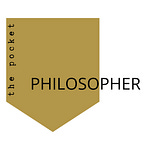Thought
Therefore:
See others as yourself.
See families as your family.
See towns as your town.
See countries as your country.
See worlds as your world.
—Tao Te Ching, 54
Application
It’s been a while since we’ve looked at wisdom from the Tao Te Ching. If you can remember back a few months ago, we briefly covered Taoism in our week on Dualism. Taoism is a philosophy that emerged in China around the 4th or 3d Century BC. It is the dualistic partner to Confucianism—a philosophy very focused on duty, ritual, and hierarchy.
Confucianism was widely accepted, most notably by the ruling or noble class of people. It was common for nobility to hire Confucian scholars to rear their children. Confucius himself is said to have first gained popularity by winning over parents, convincing them he would make the future bright.
And so while Confucianism is focused on the structure of castes, and states, and social obligations Taoism approaches life from nature, simplicity, and “humility.”
It appears that the above chapter from the Tao Te Ching is a sort of open handed response to the duty focus of Confucianism. Confucius thought demanded people to act rightly according to their place in the system. It sought to cultivate an ideal state through rules, rituals, and regulations.
The Tao rather asks us to see the world upside down. The vast majority of the Tao Te Ching invites the reader into a place of humility and service before others. Often, the Tao is said to be found in the “low places” and the “valleys.” The Tao claims to be like water, flowing into the dark and unseen regions of the land.
Here in chapter 54, the author is talking about building a virtuous state. Confucianism has rituals, rites, and rules to achieve virtuosity. But the Tao encourages us to empathize. The skill of seeing all families as our own, all towns as our own, all people as ourself, is the key to understanding the world itself.
And this is a two way street. Understanding others can help us to understand ourselves. And likewise, understanding ourselves can help us to understanding others. The act of empathy enables a certain connection that leads to collective virtue and stability.

Backstory
The Tao Te Ching is said to have been written by Lao Tzu, a famous teacher of the time. It’s unclear whether Lao Tzu (or Confucius for that matter) actually lived, or if they were simply apocryphal characters meant to carry or represent their respective traditions.
Lao Tzu decided to leave the city toward the end of his life and finish his days alone in asceticism. However, a guard at the gate would not let me him leave until he promised to write down the entirety of his knowledge about the Way.
The Tao Te Ching is the legendary result of that guard’s insistence. After writing the Tao Te Ching, Lao Tzu is said to have left never to be heard from again.
In some ways, the above quote might remind us of Jesus and his command to “Love your neighbor as yourself.” It is similar in many ways with one key difference. It appears that the Tao seeks virtue and balance via understanding and empathy, while Jesus appears to cultivate empathy and love through instruction and teaching.
And this is the primary unique feature of Taoism compared to almost any other philosophy or tradition. Taoism is largely the study of the way things are in an attempt to find a balanced, easy existence. It’s a humble study of reality without judgements.
Furthermore, it prizes the position of nature in the order of things. It borrows the language of caste, rank, and status to point us toward where real life is happening—that is in nature in the present moment. In the “humble” places, outside the city gates and far from the palace walls.
And it is in this place that nature will teach us about ourselves. It is in nature that we observe the Way and learn our place in all things. It is in the low places that we understand the mystery of the Tao. And then we are capable of extending our personal knowledge to “ever widening circles.”
This practice is what allows us to cultivate empathy for other families, other towns, and the whole world.
I’ll leave you with a short video on Taoist nature based mediation below, I’d love to hear what you think!
I hope you found today enjoyable and helpful, and I’m looking forward to sharing more on empathy tomorrow.
Until then,
Matt
PS **Are you in the field of psychology, research, or have had a deep personal experience with empathy? I’d love to hear from you. Please feel free to reply to this email or leave a comment with anything you’d like to share!
References:
https://www.taoistic.com/taoteching-laotzu/taoteching-54.htm











